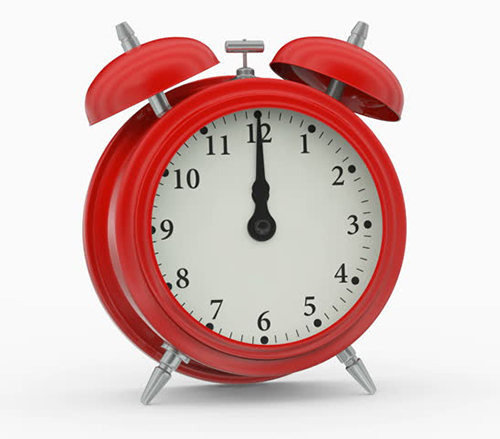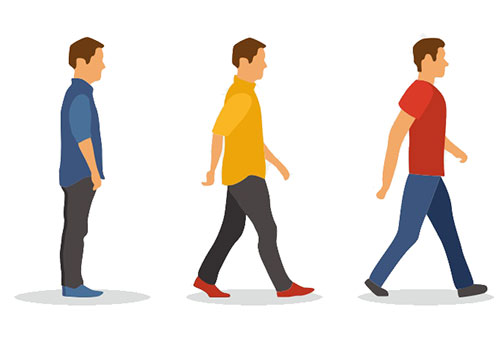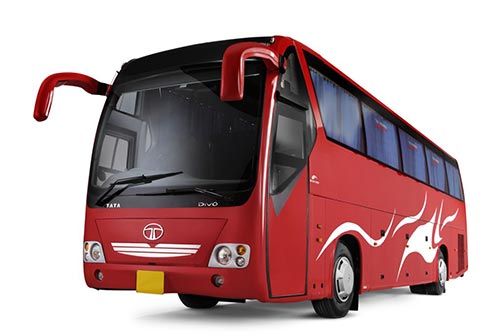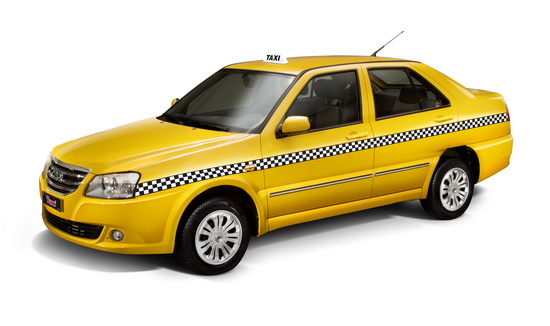late
The plane is two hours late.
Arriving, happening, or done after the time that was expected, agreed, or arranged
The plane is two hours late.
Oxford Essential Dictionary
late
adjective, adverb (later, latest)
1 near the end of a time:
They arrived in the late afternoon.
She's in her late twenties (= between the age of 25 and 29).
opposite early
2 after the usual or right time:
I went to bed late last night.
I was late for school today (= I arrived late).
My train was late.
opposite early
3 no longer alive; dead:
Her late husband was a doctor.
a late night an evening when you go to bed later than usual
at the latest no later than a time or a date:
Please be here by twelve o'clock at the latest.
Longman Dictionary of Contemporary English
late
I. late1 S1 W1 /leɪt/ BrE AmE adjective (comparative later, superlative latest)
[Language: Old English; Origin: læt]
1. AFTER EXPECTED TIME arriving, happening, or done after the time that was expected, agreed, or arranged OPP early:
Sorry I’m late – I overslept.
ten minutes/two hours etc late
You’re half an hour late.
The train was even later than usual.
We apologize for the late departure of flight AZ709.
There are penalties if loan repayments are late.
late for
Cheryl was late for school.
late with
We’ve never been late with the rent.
2. NEAR THE END [only before noun] used to refer to the part near the end of a period of time OPP early:
a late eighteenth century building
Paul’s in his late forties.
in the late 1980s
By late afternoon, she had done 10 drawings.
3. be too late to arrive or do something after the time when something could or should have been done:
He shouted a warning but it was too late.
too late to do something
Are we too late to get tickets?
It was too late to turn back.
4. AFTER USUAL TIME happening or done after the usual or normal time:
a late breakfast
The harvest was late this year because of the rain.
She looked tired – too many late nights (=nights when she went to bed after the normal time).
5. EVENING near the end of a day:
the late movie
It’s late – I’d better go home.
6. DEAD [only before noun] dead
late husband/wife
Mrs. Moore’s late husband
7. late developer/bloomer
a) a child who develops socially, emotionally, or physically at a later age than other children
b) someone who does not become successful until they are older
8. it’s (a little/bit) late in the day (to do something) used to show disapproval because someone has done something too late:
It’s a bit late in the day to start having objections.
9. late of something formal used about someone who has died fairly recently:
Billy Hicks, late of this parish
—lateness noun [uncountable]:
penalties for lateness at work
despite the lateness of the hour
• • •
THESAURUS
▪ late arriving or happening after the time that was expected or arranged: Sorry I’m late. | The bus was late. | Spring seems to be very late this year.
▪ not on time not arriving or doing something at the time that was expected or arranged: He never hands his homework in on time. | If we don’t leave on time, we’ll miss the flight.
▪ overdue not done or happening by the expected time – used especially about payments that are late or library books that should have been returned: Your rent is three weeks overdue. | I had to pay a £3 fine on some overdue library books.
▪ be behind with something British English, be behind on something American English to be late in doing something that you have to do: I can’t come out because I’m behind with my English essay.
▪ be held up to be made late for a meeting, appointment etc by something that happens, especially by bad traffic: I was held up by a traffic jam.
▪ be delayed to be prevented from arriving, leaving, or happening at the expected time – often used about public transport: The flight was delayed by bad weather.
▪ belated /bɪˈleɪtəd, bɪˈleɪtɪd/ given or done late – used especially about something that someone has forgotten or failed to do: a belated birthday card | I’m still hoping for a belated apology from him.
▪ tardy especially American English formal arriving or happening late: a habitually tardy person | a tardy decision
▪ be in arrears /əˈrɪəz $ əˈrɪrz/ formal to have not made one or more regular payments at the time when you should: One in eight mortgage payers are in arrears.
II. late2 S2 W3 BrE AmE adverb (comparative later, superlative no superlative)
1. after the usual time:
The stores are open later on Thursdays.
Ellen has to work late tonight.
Can you stay late?
2. after the arranged or expected time OPP early
ten minutes/two hours etc late
The bus came ten minutes late.
3. too late after the time when something could or should have been done:
The advice came too late.
4. near to the end of a period of time or an event
late in
The wedding took place late in May.
It was not a place to walk in late at night.
5. as late as something used to express surprise that something considered old-fashioned was still happening so recently:
Capital punishment was still used in Britain as late as the 1950s.
6. of late formal recently:
Birth rates have gone down of late.
7. late in life if you do something late in life, you do it at an older age than most people do it
8. better late than never used to say that you are glad someone has done something, or to say that they should do something even though they are late
⇨ run late at ↑run1(39)
Oxford Advanced Learner's Dictionary
late
late [late later latest] adjective, adverb [leɪt] [leɪt]
adjective (later, lat·est)
1. only before noun near the end of a period of time, a person's life, etc
• in the late afternoon
• in late summer
• She married in her late twenties (= when she was 28 or 29).
• In later life he started playing golf.
• The school was built in the late 1970s.
• a late Victorian house
• his late plays
• a late goal
• The concert was cancelled at a very late stage.
Opp: early
2. not usually before noun arriving, happening or done after the expected, arranged or usual time
• I'm sorry I'm late.
• She's late for work every day.
• My flight was an hour late.
• We apologize for the late arrival of this train.
• Because of the cold weather the crops are later this year.
• Interest will be charged for late payment.
• Here is a late news flash.
• Some children are very late developers.
Opp: early
3. near the end of the day
• Let's go home— it's getting late.
• Look at the time— it's much later than I thought.
• What are you doing up at this late hour?
• What is the latest time I can have an appointment?
• I've had too many late nights recently (= when I've gone to bed very late).
Opp: early
4. only before noun (formal) (of a person) no longer alive
• her late husband
• the late Paul Newman
see also later, latest
Word Origin:
Old English læt (adjective; also in the sense ‘slow, tardy’), late (adverb), of Germanic origin; related to German lass, from an Indo-European root shared by Latin lassus ‘weary’ and let.
Thesaurus:
late adj. not usually before noun
• My flight was an hour late.
overdue • • slow • |written belated •
Opp: early, Opp: on time, Opp: punctual
late/overdue for sth
late/slow in doing sth
two weeks/a year late/overdue
Example Bank:
• He was now three weeks late with his rent.
• I don't know what the time is, but it feels quite late.
• I'm late for work.
• It was now late into the night.
• It's getting too late to do anything today.
• Kevin was fashionably late as always.
• The train was 45 minutes late.
• You've left it a bit late to start your homework, haven't you?
• She spoke of her late husband with passion.
• She's late for work every day.
• The event was organized in memory of the late Christopher Reeve.
Idioms: better late than never ▪ late in the day ▪ late of … ▪ of late ▪ too late
Derived Word: lateness
adverb (comparative later, no superlative)
1. after the expected, arranged or usual time
• I got up late.
• Can I stay up late tonight?
• She has to work late tomorrow.
• The big stores are open later on Thursdays.
• She married late.
• The birthday card arrived three days late.
2. near the end of a period of time, a person's life, etc
• late in March/the afternoon
• It happened late last year.
• As late as (= as recently as) the 1950s, tuberculosis was still a fatal illness.
• He became an author late in life.
3. near the end of the day
• There's a good film on late.
• Late that evening, there was a knock at the door.
• Share prices fell early on but rose again late in the day.
• They worked late into the night to finish the report.
Opp: early
see also later
more at an early/a late night at night, sooner or later at soon
Word Origin:
Old English læt (adjective; also in the sense ‘slow, tardy’), late (adverb), of Germanic origin; related to German lass, from an Indo-European root shared by Latin lassus ‘weary’ and let.
Grammar Point:
late / lately
Late and lately are both adverbs, but late is used with similar meanings to the adjective late, whereas lately can only mean ‘recently’: ▪ We arrived two hours late. ◊ ▪ I haven’t heard from him lately. Lately is usually used with a perfect tense of the verb.
Look also at the idioms be too late (at the adjective) and too late (at the adverb).
of late
of ˈlate idiom
(formal) recently
• I haven't seen him of late.
• The situation has become more confusing of late.
Main entry: lateidiom
sooner or later
ˌsooner or ˈlater idiom
at some time in the future, even if you are not sure exactly when
• Sooner or later you will have to make a decision.
Cambridge Advanced Learner's Dictionary
Cambridge Advanced Learner's Dictionary - 4th Edition
late / leɪt / adjective , adverb (NEAR THE END)
A1 (happening or being) near the end of a period of time:
It was late at night.
We talked late into the night.
Is that the time? I'd no idea it was so late.
It was late summer when it happened.
It was built in the late 19th century.
He's probably in his late twenties.
As late (= as recently) as the 1980s they were still using horses on this farm.
lateness / ˈleɪt.nəs / noun [ U ]
formal the fact of being late:
It was no great surprise that you were tired given the lateness of the hour .
late / leɪt / adjective , adverb (AFTER EXPECTED TIME)
A1 (happening or arriving) after the planned, expected, usual, or necessary time:
This train is always late.
You'll be late for your flight if you don't hurry up.
Sorry I'm late. I was held up in the traffic.
It's too late to start complaining now.
We always have a late breakfast on Sunday mornings.
Some late news (= news of something that happened after the news programme started) has just come in - a bomb has exploded in central London.
Our ferry was two hours late because of the strike.
Kathryn's just phoned to say she's working late this evening.
lateness / ˈleɪt.nəs / noun [ U ]
formal the fact of being late:
It was no great surprise that you were tired given the lateness of the hour .
late / leɪt / adjective [ before noun ]
C2 describes someone who has died, especially recently:
She gave her late husband's clothes to charity.
© Cambridge University Press 2013
Collins COBUILD Advanced Learner’s English Dictionary
late
/leɪt/
(later, latest)
Frequency: The word is one of the 700 most common words in English.
1.
Late means near the end of a day, week, year, or other period of time.
It was late in the afternoon...
She had to work late at night...
His autobiography was written late in life...
The case is expected to end late next week...
≠ early
ADV: ADV with cl, ADV prep/n
•
Late is also an adjective.
The talks eventually broke down in late spring...
He was in his late 20s.
...the late 1960s.
ADJ: ADJ n
2.
If it is late, it is near the end of the day or it is past the time that you feel something should have been done.
It was very late and the streets were deserted...
We’ve got to go now. It’s getting late.
ADJ: v-link ADJ
• late‧ness
A large crowd had gathered despite the lateness of the hour.
N-UNCOUNT
3.
Late means after the time that was arranged or expected.
Steve arrived late...
The talks began some fifteen minutes late...
We got up late.
ADV: ADV after v, oft amount ADV
•
Late is also an adjective.
His campaign got off to a late start...
We were a little late...
The train was 40 minutes late...
He’s a half hour late.
ADJ: oft amount ADJ
• late‧ness
He apologised for his lateness.
N-UNCOUNT
4.
Late means after the usual time that a particular event or activity happens.
We went to bed very late...
He married late.
ADV: ADV after v
•
Late is also an adjective.
They had a late lunch in a cafe...
He was a very late developer.
ADJ: ADJ n
5.
You use late when you are talking about someone who is dead, especially someone who has died recently.
...my late husband.
...the late Mr Parkin.
ADJ: det ADJ
6.
Someone who is late of a particular place or institution lived or worked there until recently. (FORMAL)
...Cousin Zachary, late of Bellevue Avenue.
...Strobe Talbott, late of Time magazine.
ADJ: v-link ADJ of n
7.
see also later, latest
8.
If you say better late than never when someone has done something, you think they should have done it earlier.
It’s been a long time coming but better late than never.
CONVENTION
9.
If you say that someone is doing something late in the day, you mean that their action or behaviour may not be fully effective because they have waited too long before doing it.
I’d left it all too late in the day to get anywhere with these strategies.
PHRASE: PHR after v, PHR with cl
10.
If an action or event is too late, it is useless or ineffective because it occurs after the best time for it.
It was too late to turn back...
We realized too late that we were caught like rats in a trap.
PHRASE: v-link PHR, PHR with v
Merriam-Webster's Advanced Learner's Dictionary
1late /ˈleɪt/ adj lat·er; -est
1 : existing or happening near the end of a period of time
• It happened in late spring.
• His health problems began when he was in his late thirties. [=when he was about 38 or 39 years old]
• The problems began in the late 1930s. [=in about 1938 or 1939]
• a word first recorded in the late 17th century
• It was late (in the evening) when we finally went to bed.
- opposite early; see also later
2 a : coming or happening after the usual, expected, or desired time
• The train is (a half hour) late.
• We had a late spring this year.
• I'm sorry I'm late.
• He made a late payment. = He was late with his payment. = He was late (in) paying.
• Hurry up or we'll be late for school.
• We arrived late because we got/had/made a late start. [=we started at a later time than we had meant to]
• Their warning was too late to help him.
- opposite early
b : doing something after the usual time or before others usually do
• I've always been a late riser.
• a late walker [=a child who learned to walk at a later age than most other children]
- opposite early
3 always used before a noun : living until recently : not now living
• He made a donation to the school in memory of his late wife.
• the late John Smith
born too late
- see born
it's getting late
- used to say that time is passing and especially that evening or late evening is coming
• It's getting late so we should probably go home.
late bloomer
- see bloomer
late in the day : after the expected or proper time
• It's rather late in the day for an apology now, don't you think? [=it's late for an apology; you should have apologized sooner]
late night : a night when you stay awake until a late hour
• We're tired today because we had a late night [=stayed up late] last night.
- see also late-night
- late·ness noun [noncount]
• the lateness of the hour
• the lateness of the payment






